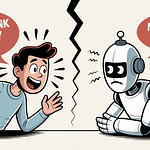Imagine waking up one day to find that your face has been used in a video you never authorized—perhaps endorsing a product you detest or uttering words you never spoke. As AI-driven deepfakes blur the line between reality and fabrication, Denmark is stepping forward with a bold, pioneering law that might just change the way we own ourselves in the digital era.
In an era where your likeness can be copied, manipulated, and weaponized with alarming ease, Denmark is preparing to become the first country in Europe to grant citizens copyright-like control over their own faces, voices, and bodies. This radical legal shift, championed by Culture Minister Jakob Engel-Schmidt, seeks to transform personal identity from an intangible social fact into a form of intellectual property. The proposal aims to empower individuals with unprecedented rights to their physical selves—rights that, until now, belonged mostly to corporations or creative industries.
The Anatomy of a New Law: What Denmark Is Changing
At its core, the proposed law rewires the traditional boundaries of privacy and copyright. It would treat your face, voice, and bodily presence as if they were creative works, much like a musician owns a song or a painter owns a canvas. This means:
Ownership of Your Likeness: Your physical identity—face, voice, and body—would legally belong to you. Any replication by AI systems without your consent could be deemed an infringement, granting you control over how your digital “self” is used.
Deepfakes Under the Legal Lens: AI-generated deepfakes—highly realistic digital recreations of individuals—would be treated similarly to pirated media. The law would prohibit the creation and dissemination of deepfakes without explicit authorization, giving victims the power to demand removal of unauthorized content.
Civil Enforcement Rather than Criminal: Unlike criminal statutes elsewhere, Denmark’s approach is civil. Victims can issue takedown demands and seek compensation through civil courts. Platforms failing to comply face severe fines, but individual offenders won’t face jail time.
How Will This Play Out in Practice?
The mechanism closely resembles the familiar DMCA takedown system used for copyrighted content online:
If someone crafts a deepfake using your likeness without permission, you can issue a formal takedown request to the hosting platform.
Platforms that do not remove infringing content risk hefty fines and possible enforcement actions coordinated with the European Union.
Victims can pursue monetary damages under existing compensation frameworks.
Crucially, parody and satire remain protected, ensuring that the law respects freedom of expression and comedic critique.
Why This Matters: A Paradigm Shift in Digital Rights
Denmark’s initiative represents a legal innovation born out of necessity. The rapid advance of generative AI technologies has exposed gaps in existing legal frameworks. Traditional privacy laws struggle to tackle the novel challenge of identity manipulation at scale, while copyright law has not conventionally recognized one’s own likeness as property.
By elevating the physical self to a form of intellectual property, Denmark offers a template that blends privacy, personality rights, and copyright into a cohesive new category. This approach:
Pioneers a New Model: Denmark could become the first European nation—and among the very first globally—to enact such sweeping digital identity protections.
Responds to Technological Reality: With AI capable of producing convincing fakes in seconds, a stronger legal shield is urgently needed.
Signals EU-Wide Ambitions: Denmark plans to leverage its upcoming presidency of the European Union to promote this model, potentially influencing policy across the continent.
Global Context: How Denmark’s Law Stacks Up
Across the world, governments are grappling with deepfake challenges but with varying strategies:
Denmark’s civil, copyright-like framework contrasts with the criminalized, punitive regimes elsewhere, emphasizing individual control over coercive penalties.
The Road Ahead
The bill is currently in public consultation with formal parliamentary introduction expected this autumn. If enacted, it will position Denmark as a trailblazer in digital identity rights, potentially influencing legislation far beyond its borders.
Yet, challenges remain:
How will courts interpret “ownership” of one’s likeness?
Will platforms globally comply or resist such laws?
Can satire and free speech maintain a protected space amidst stricter controls?
Vocabulary Key
Deepfake: AI-generated media that realistically mimics a person’s appearance or voice.
Intellectual Property (IP): Legal rights that protect creations of the mind, like inventions, designs, and artistic works.
Takedown Request: A demand to remove content that infringes rights, often used in copyright law.
Civil Enforcement: Legal actions that involve lawsuits or fines but not criminal prosecution.
Parody and Satire: Forms of expression that imitate or humorously critique, often protected under free speech.
Reflecting on Identity in the Age of AI
Denmark’s bold experiment forces us to rethink what it means to “own” ourselves in a digital age where identity can be copied, manipulated, and sold without our consent. Beyond legal technicalities, this law taps into a profound human desire for agency over our own image—the face we present to the world, both offline and online.
As AI technologies grow more powerful, they challenge the very essence of authenticity and trust. Denmark’s approach does not merely react to a technical problem; it anticipates a future where our digital selves become assets, and where protecting that identity requires new legal imagination.
This is more than copyright law—it is a declaration that in the tangled web of algorithms and pixels, the individual must remain sovereign over their own face. The wolf is calling: follow Denmark’s lead, and join the global conversation about how to protect what makes us uniquely human in the AI era.
FAQs
What rights would the new Danish law grant to citizens?
It grants copyright-like ownership over one’s face, voice, and body, allowing legal control over unauthorized AI-generated use.How would the law handle deepfakes?
Deepfakes created or shared without consent would be considered copyright infringement, allowing victims to request takedowns.Are there any criminal penalties under this law?
No, the law is civil. Victims can seek removal and damages, but no jail time is involved.Does the law protect parody or satire?
Yes, comedic or critical use is explicitly exempt from infringement claims.Could this law influence other countries or the EU?
Yes, Denmark plans to promote this model at the EU level, potentially shaping future AI and digital rights policies.
Additional Reading for Inquisitive Minds:
Deepfake Laws and Digital Identity Protections
For readers interested in exploring the legal landscape and policy details behind Denmark’s deepfake law and related international efforts, here are reputable sources in MLA format with clickable links:
Denmark’s Deepfake Law
“Denmark proposes landmark law to protect citizens from deepfake misuse.” CADE Project, 1 July 2025. Read here.
“Denmark fights back against deepfakes with copyright protection: What other laws exist in Europe?” Euronews Next, 30 June 2025. Read here.
“Denmark wants you to copyright yourself. It might be the only way to stop deepfakes.” Fast Company, 3 July 2025. Read here.
“Danes Could Get Copyright to Their Own Image Under AI Bill.” TIME, 27 June 2025. Read here.
“Denmark taking steps to boost protections against deepfake images.” AP News, 27 June 2025. Read here.
France’s Deepfake Law
“France prohibits non-consensual deep fakes.” JD Supra, 15 July 2024. Read here.
“France: Bill Introduced to Require Labeling of AI-Generated Images on Social Networks.” Library of Congress, 7 March 2025. Read here.
“Deepfake laws: Global regulations in the digital age against misinformation.” Yoti, 11 September 2024. Read here.
UK Deepfake Laws
“Creating deepfake porn to be made a crime in UK under ‘first-of-its-kind’ law.” Euronews Next, 17 April 2024. Read here.
“Government crackdown on explicit deepfakes.” GOV.UK, 7 January 2025. Read here.
“Government cracks down on ‘deepfakes’ creation.” GOV.UK, 16 April 2024. Read here.
“Campaign win: law to stop deepfake abuse.” End Violence Against Women Coalition, 12 March 2025. Read here.
USA: Take It Down Act (2025)
“Text - S.146 - 119th Congress (2025-2026): TAKE IT DOWN Act.” U.S. Congress, 19 May 2025. Read here.
“S.146 - TAKE IT DOWN Act 119th Congress (2025-2026).” U.S. Congress, 19 May 2025. Read here.
“‘Take It Down Act’ Requires Online Platforms To Remove Deepfakes.” Skadden, 1 June 2025. Read here.
“TAKE IT DOWN Act Passes the House, Heads to President Trump’s Desk.” U.S. Senate Committee on Commerce, Science, and Transportation, 28 April 2025. Read here.
Podcast Note: The voices you hear are 100% AI-generated using NotebookLM. I love my virtual podcasters—they’re smart, fast, quirky, don’t drink my coffee, and live solely in the digital universe.
#ai #deepfakes #digitalidentity #copyrightlaw #intellectualproperty #deeplearning #aipolicy #dataprotection #techlaw #futureofai #privacyrights #digitalrights #aitech #innovation #ethicsinai
















Share this post